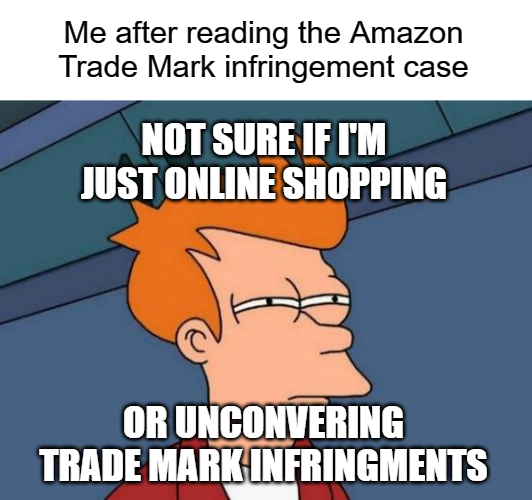Amazon's Big Problem

Hi this is ZipLaw! This is our Roundup Newsletter where we run through all the top news stories of this past week and explain how they impact law firms.
Are you new here? Get free emails to your inbox.
Here’s what we’re serving today:
- 📦 IP: Amazon is in big trouble
- 💉 Pharma: Obesity Drug Money
- 🔋 Energy: The Top EV country is...
- 🤝 Trade: US squeezes China
- ⚖️ Law: 2 Law Firms lead on £5B box deal
Amazon's big problem
In Short: The Supreme Court held that even if Amazon's US site doesn't explicitly list UK-bound goods, the mere fact that UK consumers can buy them (albeit with a bit of a wait and extra shipping fees) means Amazon is "targeting" UK shoppers. This is a HUGE decision, here's why...

What was the case about?
The case involved a company called Lifestyle, the holder of EU and UK trademarks for "BEVERLY HILLS POLO CLUB" (both the name and a logo featuring a horse and rider).
One day Lifestyle felt brave and decided to pick a fight with a company you might know called Amazon. Lifestyle accused Amazon of infringing its trademarks by selling and marketing identical US-branded goods to UK and EU customers through Amazon's US website. The twist? These US-branded goods are produced by a different entity in the US, not related to Lifestyle, yet bear the same trademarked name and logo.
What did the Supreme Court decide and why?
The Supreme Court, in a unanimous decision, backed the Court of Appeal's earlier verdict, essentially saying Amazon did target UK consumers through its US website. This targeting was significant enough to infringe upon Lifestyle's UK and EU trademark rights. Despite the site being .com and seemingly US-focused, the court saw through Amazon's digital strategies, highlighting that features like the option to pay in British pounds and direct shipping offers to the UK constituted a clear marketing ploy aimed at UK customers.
Why does it matter?
This verdict is music to the ears of brand owners and licensors, providing a much-needed blueprint on what constitutes "targeting" in the context of cross-border internet sales and, consequently, trademark infringement. On the flip side, it's a massive headache for online retailers (think Amazon, ebay etc.) who will now need to carefully evaluate if (and how) they target consumers globally, and if that could lead to liability for trade mark infringement. While the ruling is a significant win for trademark protection, it leaves some questions unanswered, particularly regarding sales that occur without explicit targeting. This grey area might be a key battleground for future legal battles.
⚖️ How does this impact Law Firms?
Join ZipLaw+ to continue reading
